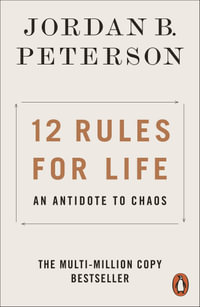Mental illness complicates views of agency and moral responsibility in ethics. Particularly for traditions and theories focused on self-cultivation, such as Aristotelian virtue ethics and many systems of ethics in early Chinese philosophy, mental illness offers powerful challenges. Can the mentally ill person cultivate herself and achieve a level of virtue, character, or thriving similar to the mentally healthy? Does mental illness result from failures in self-cultivation, failure in social institutions or rulership, or other features of human activity? Can a life complicated by struggles with mental illness be a good one?
The Dao of Madness investigates the role of mental illness, specifically "madness" (kuang), in discussions of self-cultivation and ideal personhood in early Chinese philosophical and medical thought, and the ways in which early Chinese thinkers probed difficult questions surrounding mental health. Alexus McLeod explores three central accounts: the early "traditional" views of those, including Confucians, taking madness to be the result of character flaw; the challenge from Zhuangists celebrating madness as a freedom from standard norms connected to knowledge; and the "medicalization" of madness within the naturalistic shift of Han Dynasty thought. Understanding views on madness in the ancient world helps reveal key features of Chinese thinkers' conceptions of personhood and agency, as well as their accounts of ideal activity. Further, it exposes the motivations behind the origins of the medical tradition, and of the key links between philosophy and medicine in early Chinese thought.
The early Chinese medical tradition has crucial and understudied connections to early philosophy, connections which this volume works to uncover.
Industry Reviews
"The work is an exciting exploration of an unreasonably marginalized topic that should be of interest to a wide array of readers that are keen on Chinese religious philosophies and cross-cultural medical humanities." -- Lehel Balogh, Religious Studies Review
"This lucid, accessible account of madness in ancient China demonstrates, contra Foucault, that peoples of all cultures make distinctions between the sane and insane, healthy and mentally ill. They do so, however, in vastly different ways - ways that help us think productively about current philosophical issues concerning self, personhood, and agency. Anyone who wants to understand mental illness from a scintillating, cross-cultural and comparative framework
should read McLeod's book." -- Erica Brindley, Professor of Asian Studies, History and Philosophy, Penn State University
"The Dao of Madness is a fascinating work of comparative philosophy. By reorganizing the narrative of early Chinese thought around debates about what counts as madness and sanity, McLeod raises many intriguing ideas to a new level of prominence. Especially noteworthy is the way he brings together discussions from the early medical texts with the philosophical literature. ÂReaders interested in moral psychology, comparative ethics, and different
conceptions of human subjectivity will be eager to engage with the diverse early Chinese accounts presented here." -- Aaron Stalnaker, Professor of Religious Studies, Indiana University, Bloomington
"The work is an exciting exploration of an unreasonably marginalized topic that should be of interest to a wide array of readers that are keen on Chinese religious philosophies and cross-cultural medical humanities." -- Lehel Balogh, Religious Studies Review Vol 48.4
"MacLeod's insightful and thought-provoking study may inspire sinologists to explore the changing meaning of madness in early China. For researchers of madness and its history in the West, this masterful book may further their knowledge of the diverse ways of "being mad" in different social and historical contexts." -- Shu Wan, H-Sci-Med-Tech
























